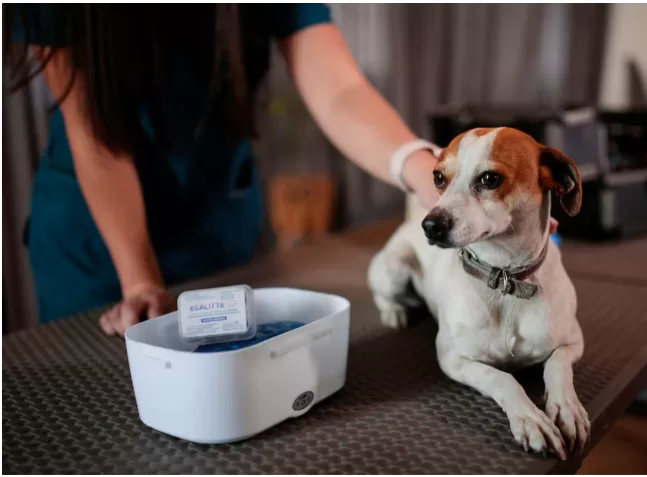Santiago, Chile – Findley, a small white and brown Chilean terrier, is making headlines as one of the first dogs globally to undergo a neutering procedure that requires no surgery. This innovative approach, developed by a team of Chilean scientists led by veterinarian Leonardo Saenz at the University of Chile, utilizes a new immunocastration vaccine named Egalitte.
The groundbreaking procedure took place in Findley’s home, where he was comfortably held by his owner, Tamara Zamorano, while receiving treats during and after the injection. The vaccine eliminates the need for sedation or surgical intervention, allowing Findley to scamper off afterward as if nothing had happened.
Egalitte works by blocking the reproductive hormone, effectively placing the dog in a state of castration without the traditional invasive surgical methods. “If we have that hormone blocked, we don’t release gonadotropin and therefore don’t release sexual hormones,” Saenz explained. This innovative vaccine can be administered to both male and female dogs and is priced at approximately 50,000 Chilean Pesos (around $54). However, it requires a veterinarian’s prescription and evaluation to ensure that the dog is a suitable candidate for the treatment.
Saenz emphasized the potential benefits of this new vaccine for wider neutering efforts. “An injection is a lot easier, and you can vaccinate a larger number of animals if you need to do reproduction control,” he noted, pointing to its less invasive nature compared to traditional surgical castration methods.
For Zamorano, the reversibility of the procedure was a key factor in her decision to choose Egalitte for Findley. “With the other treatment, castration, we were a little afraid. Aside from being simple, it’s reversible, so if we want to breed him when the time is right, we can,” she said.
While Findley did not provide commentary on his experience, he did squirm slightly during the injection but later licked the veterinarian’s hand, indicating that he had taken the procedure in stride. This new development could pave the way for a significant shift in how pet owners approach neutering, promoting animal welfare while offering greater flexibility for breeders.
As the veterinary community continues to explore the implications of this innovative vaccine, Findley’s case stands as a promising example of how science can enhance pet care and control over animal reproduction.












